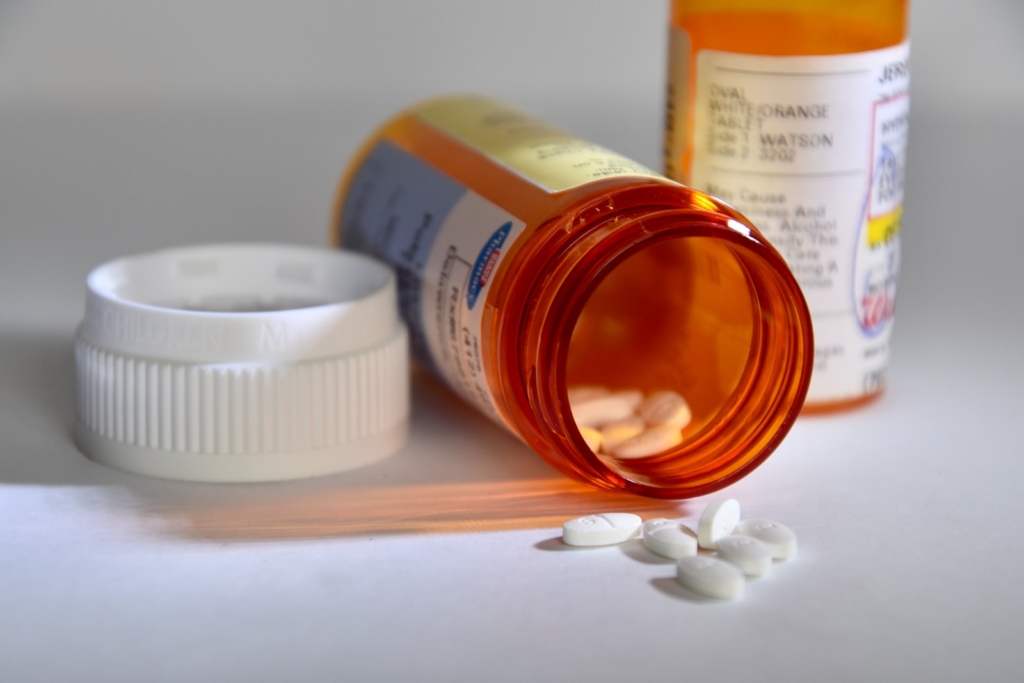Medication can have an array of unexpected side effects. Hair loss, hyperactivity, and headaches are just a few of the unwelcome results often associated with different drugs. If you’ve started taking an antidepressant, anti-anxiety medication, antipsychotic, or mood stabilizer, you may notice that one of the side effects is a loss of libido. You might lack sex drive, or you may even find it difficult to function sexually. Needless to say, this can impact your relationship and quality of life, but it might be difficult to find solutions for such a sensitive subject.
You should know, first, that you aren’t alone. It’s estimated that sexual dysfunction (SD) affects 15% of people taking selective serotonin reuptake inhibitors (SSRIs)— the most commonly prescribed class of antidepressants — and some studies say the number may even be as high as 60%. Why does this happen, and how can you mitigate the problem? Find out why medication may be impacting your libido and what you can do about it.
Understanding Medication’s Effects on Your Body
There are several reasons why medication can impact your sex drive. Medication’s purpose is to alter certain functions of your body and brain, but sometimes it alters functions unintendedly and yields side effects like a lowered libido. This is the result of specific chemical reactions such as the following.
Excess of Serotonin Production
Antidepressants and anti-anxiety medication are the most common culprits for lowered libido, and it’s largely due to these medications’ impact on serotonin levels. Increased serotonin—which is the effect that medications such as Celexa, Prozac, and Lexapro have — can make you feel calmer and more emotionally stable.
Unfortunately, though, it can also dampen your sex drive. Serotonin interacts with your excitatory system, inhibiting its ability to be aroused when prompted by sexual cues. This biochemical interaction ultimately dampens libido, and in some cases, leads to sexual dysfunction.
Interference With Dopamine Receptors
Dopamine is closely linked with heightened libido and sexual function. For medications such as Wellbutrin — which increases dopamine neurotransmission in the brain — this can actually lead to a boost in libido, though for most people, it’s a modest change. Some antipsychotic medications, though, work in the opposite way—they block or inhibit dopamine neurotransmission, which in turn, is likely to negatively impact libido.
This is because issues such as schizophrenia, bipolar disorder, and obsessive-compulsive disorder are all linked to excessive dopaminergic activity. Inhibiting dopamine can thus provide relief from symptoms, but it can also cause a lack of sex drive or anorgasmia.
Impact on Testosterone and Estrogen
Yet another biochemical process that must be considered is the impact of antidepressants, antipsychotics, and anti-anxiety medication on sex hormones — especially testosterone. Antipsychotic medications, in particular, have been linked to hyperprolactinemia — an increased concentration of prolactin in the bloodstream.
Hyperprolactinemia can ultimately cause decreased testosterone, which is correlated to low sex drive in both men and women. Some research suggests that antidepressants and anti-anxiety medications may have a similar effect — though the link is not as strong as the link between antipsychotics and low testosterone.
Strategies to Combat Loss of Libido
When you’re dealing with low libido, your first priority is probably finding a remedy to the problem. Consider these three strategies you can try right now to mitigate the negative impact of a low sex drive.
Get the Timing Right
One of the most effective ways to combat low libido caused by medication is to time your dosage strategically. Most medications are best taken in the morning simply because that allows them to be effective throughout the day, making it easier to work into your daily routine. Additionally, some medications cause alertness, which may lead to insomnia if taken at night.
If at all possible, though, it may be beneficial to time your medication dosage in a way that facilitates intimacy. You may make time with your partner in the evening, for example, and plan on taking your medication afterward before you go to sleep. This may help to minimize the medication’s impact on your libido and sexual function.
Work With Your Partner
It’s important that you collaborate with your partner, too, to find solutions that work. They need to be supportive as you work through the challenges of your new antidepressant medication in Nashville. You and your partner can work together to overcome low libido by trying any of the following strategies:
- Engage in meditation together to relax
- Focus more on touch and sensation
- Talk about the issue to eliminate tension
- Try new things to stimulate sex drive
You should always include your partner in the implementation of these solutions. They may have some suggestions that prove to be productive.
Make Lifestyle Changes
Another way to combat a low sex drive is to focus on activities known to increase sex drive. One of the best examples of this is exercise. Multiple studies confirm that working out is associated with a higher sex drive and better sexual function. Testosterone levels often go hand in hand with heightened libido.
You can also make positive changes in your eating habits. There are many foods that have been linked to an increased sex drive, and integrating these into your diet may have a positive effect on your libido. More importantly, though, you’ll likely see an improvement simply by cutting out junk food and filling your meals with healthy, nutritious ingredients.
Assess the Pros and Cons of Current Medication
If the aforementioned strategies don’t work, and you’re not sure what else to do, it may be time to look at the pros and cons of your current medication regimen. Consider the following factors to decide whether or not you may need new medication.
Weighing the Advantages of Your Current Medication
To consider the positive effects of your medication, you should think of the symptoms that prompted you to seek medication in the first place. Some of the most common reasons people pursue antidepressants in Nashville, for example, include the following:
- Continuous feelings of sadness
- Inability to concentrate
- Impulses to harm yourself
- Feeling worthless
- Thoughts of suicide
You should make a list of these — or whatever symptoms you are battling — and rate, on a scale of one to ten, how severe each symptom is. Make a column indicating the rating before medication and another column indicating after you began medication. This can help you get a big picture view of how impactful the medication is.
Considering the Drawbacks of Your Current Medication
Once you’ve outlined the benefits of your current medication, you can do the same again — but with the drawbacks, you’re experiencing. Think of any disadvantages, in addition to low libido, that may be negatively affecting your life. Compare the two lists to see whether the pros outweigh the cons — or vice versa. If the latter is true, it may be necessary to start looking at other options for medication in Nashville.
Consider Other Medication Options
Sometimes low libido can impact your quality of life substantially enough that you need to look for a new medication. Luckily, there are a few medication options that may be able to provide relief without negatively impacting your sex drive. Some classes of medications, such as antipsychotics, are difficult to find without any impact on libido. There are some medications that treat depression, anxiety, and ADHD, though, that may offer a better solution. A few of the medications that have fewer reports of sexual side effects include the following:
- Wellbutrin, generic name bupropion
- Trintellix, generic name vortioxetine
- Remeron, generic name mirtazapine
- Viibryd, generic name vilazodone
Some of these medications — such as Wellbutrin — target dopamine rather than serotonin. This may explain serotonin’s lack of impact on libido. If you’re ready to try a new medication but want to avoid a lowered sex drive, one of these medications may work.
How to Find the Right Medication Management in Nashville
Finding the right medication can be a frustrating process. It’s easier when you have a dedicated psychiatric provider in Nashville to partner with you. The right mental health professional can help you explore all of your treatment options, discuss side effects, and find the best solution for your unique needs. If your current medication—or provider — isn’t working for you, look for a provider who specializes in treating disorders such as depression, anxiety, and other mental health concerns.
Rose Behavioral Health serves clients in Nashville, Chattanooga, Memphis, and throughout Tennessee. In addition to providing in-person mental health services in Nashville, our providers are available via telehealth, so that you never need to worry about scheduling difficulties. You don’t have to struggle with side effects like low libido. Find a medication that alleviates mental health symptoms without impacting your sec drive. See how one of our providers can help you discover effective medication management solutions.








